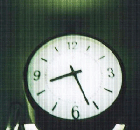Key Topics
Chinese voice concerns on-line ahead of sessions
(Xinhua)
Updated: 2010-02-23 10:54
 |
Large Medium Small |
BEIJING: "Livelihood issues" are Chinese people's top concerns as shown in on-line polls ahead of the annual parliamentary and political advisory sessions.
Chinese netizens have voiced their complaints on-line and hope their voices could be heard by top leaders, national lawmakers and political advisors, who will soon gather in Beijing for the two sessions.
| ||||
"Pension" has earned 25,508 votes at people.com.cn, followed by anti-corruption, housing price, the income gap, employment and health care, among others. "Pension" also ranked among the top five concerns at cctv.com.
Netizens called for the scraping of the long-time "dual pension scheme," in which civil servants and other public employees were entitled to pensions several times the amount of citizens employed by non-public entities.
"The current pension scheme widens the wealth gap," a person posted at xinhuanet.com.
The amount of pension given to ordinary citizens was determined by one's monthly payment dedicated to their social security account before they retired, and is fixed to the average social income.
Retirees of non-public entities get much less than their salary before retirement. But the amount of pension government employees get is almost the same as they got before retirement, sometimes two or three times higher than a factory worker.
The government raised the pension for ordinary citizens by 10 percent, or 120 yuan monthly per person, starting from Jan. 1, 2010. This is the sixth time the pension has been raised since 2005. But the amount still cannot match that of civil servants'.
HOUSING PRICE
"Housing" is the top concern in the survey hosted by xinhuanet.com and has attracted a huge amount of comments on-line.
Traditionally in China, an apartment of one's own is a must-have for marriage, although the government has tried to encourage young people to rent rooms before they buy one.
As housing price in large Chinese cities have kept soaring over the past years, the government has been working on plans to increase public rental housing and build more government subsidized affordable houses.
But a report from the Standing Committee of the National People's Congress, the top legislature, said construction of low-income houses was behind target, with only about 23 percent of investment realized by the end of last August.
According to the Beijing Municipal Statistics Bureau, the city's average annual income in 2008 was 44,715 yuan, while urban apartments were selling for an average 15,581 yuan per square meter.
An apartment of 80 square meters costs almost 1.25 million yuan, which would require a family of two wage-earners to repay with half their salaries for 30 years.
The past year saw a 24 percent increase in housing prices nationwide, according to a report from the real estate association of the All-China Federation of Industry and Commerce earlier this month.
"Hi, Premier Wen, we hope you can help us. Houses are for the rich but not for ordinary people like us. Even in my hometown, a small city as Shandong's Zibo, houses are too expensive for us. We hope the central government can address this problem," a post said at xinhuanet.com.











